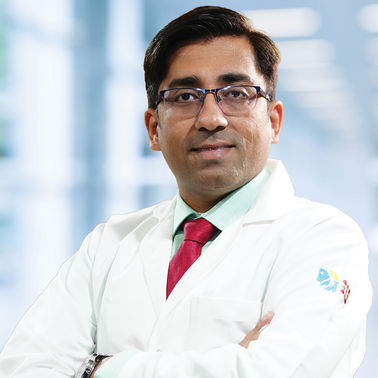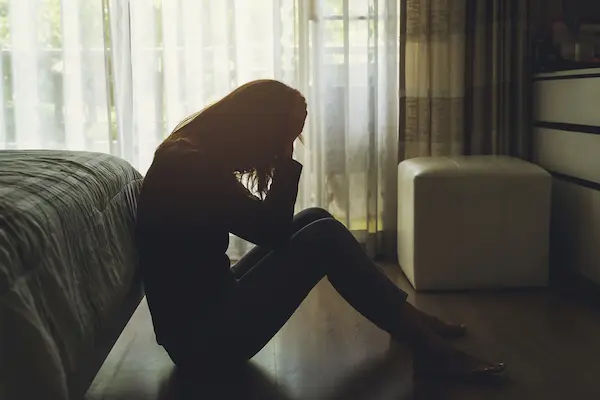Let’s Talk About Depression: A Guide to Understanding and Healing
Understand depression and explore effective ways to heal. Learn the signs, causes, treatments, and how to support yourself or a loved one on the path to mental wellness.

Written by Dr. Siri Nallapu
Reviewed by Dr. Rohinipriyanka Pondugula MBBS
Last updated on 13th Jan, 2026

Introduction: Breaking the Silence on Depression
Depression is a word we often hear, but it’s a condition that is frequently misunderstood. It’s more than just feeling sad or going through a rough patch; it's a common but serious medical illness that negatively affects how you feel, the way you think, and how you act. The World Health Organisation estimates that over 280 million people worldwide live with depression, making it a leading cause of disability. Yet, despite its prevalence, a heavy stigma often prevents open conversation. This guide aims to change that. The core message is simple and vital: let's talk about depression. By bringing it into the light, we can dismantle the shame, recognise the signs, and understand that effective help is available. This article will walk you through what depression truly is, how to identify its symptoms, the importance of conversation, and the various paths toward healing. Remember, seeking help is a sign of strength, not weakness.
What is Depression, Really? More Than Just Sadness
Many people use the word "depressed" to describe feeling down about a bad day at work or a disappointment. While these feelings are valid, they are not the same as clinical depression, also known as major depressive disorder (MDD). Depression is a persistent state that lasts for at least two weeks and significantly interferes with daily life, work, and relationships. It saps your energy, hope, and drive, making it difficult to do what you need to feel better. Unlike temporary sadness, which often has a clear cause and fades with time, depression can feel like a heavy fog that doesn’t lift, sometimes even when everything in your life seems fine on the surface.
Clinical Depression vs. Everyday Sadness: Knowing the Difference
The key differentiators are duration, intensity, and impact. Everyone feels sad occasionally—it's a natural human emotion. This everyday sadness is usually tied to a specific event, is temporary, and allows you to still experience moments of happiness. Clinical depression, however, is pervasive. It’s a constant feeling of emptiness or despair that lasts most of the day, nearly every day. It diminishes your ability to function at school, work, or in social situations. While grief and sadness have waves, depression can feel like a stagnant pool, making it hard to see a way out.
The Brain on Depression: A Brief Look at the Biology
Depression isn't "all in your head" in the dismissive sense; it has real biological underpinnings. Research suggests it involves changes in brain chemistry, specifically with neurotransmitters like serotonin, norepinephrine, and dopamine, which regulate mood, sleep, and appetite. Neuroimaging studies have also shown that the brains of people with depression can look different, particularly in areas that manage mood, thinking, sleep, and appetite. Understanding this helps reframe depression as a physical health condition, much like diabetes or heart disease, which requires medical attention and treatment.
Consult a Psychiatrist for the best advice
Recognising the Signs: A Checklist of Depression Symptoms
Recognising the signs of clinical depression is the first step toward getting help. Symptoms can vary from person to person but generally fall into a few key categories. It's important to note that you don't need to experience all of these to be dealing with depression.
Emotional and Psychological Symptoms
The emotional toll is often the most recognisable. This includes a persistent sad, anxious, or "empty" mood. Many describe it as a feeling of numbness. Overwhelming feelings of hopelessness, pessimism, guilt, worthlessness, or helplessness are common. You might experience intense irritability over small matters, a loss of interest or pleasure in hobbies and activities you once enjoyed (anhedonia), and difficulty concentrating, remembering details, or making decisions.
Physical Symptoms You Might Not Expect
Depression doesn't just affect the mind; it has tangible physical symptoms. These can include:
• Significant changes in appetite or weight: This can manifest as either a loss of appetite and weight loss or increased cravings for comfort food and weight gain.
• Sleep disturbances: This includes insomnia (difficulty falling or staying asleep) or hypersomnia (sleeping too much).
• Fatigue and decreased energy: Even small tasks can feel exhausting and require immense effort.
• Unexplained aches and pains: Headaches, back pain, and muscle aches that don't respond well to treatment are frequently reported.
Behavioural Changes and Social Withdrawal
As the emotional and physical symptoms take hold, they lead to behavioural changes. You might notice social withdrawal, avoiding friends, family, and social gatherings. There can be a noticeable slowdown in movements and speech (psychomotor retardation) or, conversely, restlessness and an inability to sit still (psychomotor agitation). In severe cases, thoughts of death or suicide may occur. If you are experiencing suicidal thoughts, it is a medical emergency. Please contact a crisis hotline or seek immediate help from a healthcare professional.
What Causes Depression? It's Rarely Just One Thing
There is no single cause for depression. It typically results from a complex interaction of factors. Understanding these can help remove self-blame and provide a clearer picture of the condition.
Biological and Genetic Factors
Depression can run in families, suggesting a genetic vulnerability. If you have a first-degree relative (parent or sibling) with depression, you are two to three times more likely to develop it yourself. This doesn't mean it's inevitable, but it indicates a predisposition. Biochemistry, as mentioned earlier, plays a critical role.
Environmental Triggers and Life Events
Difficult life events often act as triggers for a depressive episode, especially in those already predisposed. These can include trauma, the loss of a loved one, a difficult relationship, financial strain, or any highly stressful situation. Chronic stress, in particular, can deplete the brain's resources over time, making it more susceptible to depression.
Psychological and Personality Factors
Certain personality traits, such as low self-esteem, being overly self-critical, or a tendency toward pessimism, can increase vulnerability. Those who have experienced trauma or neglect in childhood may also have a higher risk, as early experiences can shape brain development and stress responses.
Taking the First Step: How to Talk About Your Depression
One of the hardest parts of dealing with depression is finding the words to talk about it. The stigma can make you feel ashamed or afraid of being a burden. However, talking to a doctor about mental health is a courageous and crucial step.
Preparing to Have the Conversation
You don't need to have it all figured out. Before talking to someone, it can help to write down your feelings. Note the symptoms you've been experiencing (using the checklist above) and for how long. This can make it easier to explain when you feel nervous. You could start with something simple like, "I haven't been feeling like myself lately, and I'm worried I might be depressed."
Who to Talk To: Friends, Family, and Professionals
Seeking support is a vital step in managing mental health. Consider these options:
• Friends and Family: Choose someone you trust to be supportive and non-judgmental. They may not have all the answers, but sharing the burden can provide immense relief.
• Professionals: This is the most important conversation. A primary care physician is a great starting point. They can rule out other medical conditions and provide a referral to a mental health specialist. If your symptoms persist beyond two weeks, consult a doctor online with Apollo24|7 for further evaluation. They can connect you with psychiatrists or therapists who specialise in depression.
Finding Your Path to Healing: Effective Treatment Options
The good news is that depression is highly treatable. Between 80% and 90% of people with depression eventually respond well to treatment. A combination of approaches is often most effective.
Psychotherapy: Unpacking Your Thoughts and Feelings
Psychotherapy, or "talk therapy," is a foundational treatment. It involves working with a therapist to identify and change troubling emotions, thoughts, and behaviours.
Cognitive Behavioural Therapy (CBT)
CBT is one of the most effective forms of therapy for depression. It is based on the idea that our thoughts, not external events, affect how we feel. CBT teaches you to identify negative thought patterns (cognitive distortions) and reframe them into more balanced and realistic ones, which in turn improves your mood and behaviour.
Other Therapeutic Approaches
Other effective modalities include interpersonal therapy (IPT), which focuses on improving relationship skills, and psychodynamic therapy, which helps you understand and resolve past conflicts.
Medication: How Antidepressants Can Help
Antidepressants are medications that can help modify brain chemistry to relieve symptoms. They are not "happy pills" but rather tools that can correct underlying biological imbalances, making it easier for you to engage in therapy and daily life. It may take a few weeks to feel the full effect, and finding the right medication and dosage is a collaborative process with your doctor.
The Power of Lifestyle Changes: Diet, Exercise, and Sleep
While not a substitute for professional treatment, natural ways to cope with depression can significantly support recovery. Consider the following approaches:
• Exercise: Regular physical activity is a powerful antidepressant. It releases endorphins and other neurochemicals that enhance well-being.
• Diet: A balanced diet rich in omega-3 fatty acids, whole grains, and vegetables can support brain health.
• Sleep: Prioritising good sleep hygiene is critical, as sleep and mood are deeply connected.
• Sunlight and Nature: Exposure to sunlight can boost serotonin levels, and spending time in nature has been shown to reduce stress.
If your condition does not improve after trying these methods, book a physical visit to a doctor with Apollo24|7 to discuss a more comprehensive treatment plan.
How to Support a Loved One with Depression
If someone you care about is depressed, your support can be invaluable.
What to Say (and What to Avoid)
• Do Say: "I'm here for you," "You are not alone in this," "Tell me what I can do to help."
• Avoid Saying: "Just snap out of it," "It's all in your head," "You have so much to be happy about." These statements minimise their experience.
Practical Ways to Offer Help
Offer specific help, like cooking a meal, running an errand, or simply sitting with them. Gently encourage them to seek professional help and offer to help them make an appointment or go with them. Most importantly, be patient. Recovery takes time.
Conclusion: You Are Not Alone, and Help is Available
Depression can be an isolating and overwhelming experience, but it is important to remember that you are not alone. Millions of people have walked this path and found their way back to wellness. The journey begins with a single, brave step: starting a conversation. By understanding the nature of depression, recognising its signs, and knowing that proven, effective treatments exist, we can replace fear with hope. Let's talk about depression openly and without judgment. If you see yourself or a loved one in this guide, take it as a sign to reach out. Healing is not only possible; it is the expected outcome with the right support and treatment.
Consult a Psychiatrist for the best advice
Consult a Psychiatrist for the best advice

Kritika Agarwal
Psychiatrist
7 Years • MBBS (2018), MD (Psychiatry) (2022), DNB (Psychiatry) (2023)
Guwahati
Apollo Excelcare Hospital, Guwahati

Dr. Jinesh Shah
Psychiatrist
20 Years • MBBS, MRCPsych (UK), CCT in Adult Psychiatry (UK), CCT in Child and Adolescent Psychiatry (UK), PG Diploma in Clinical Psychiatry (UK), Cert Hypnotherapy (UK).
Ahmedabad
Apollo Speciality hospital, Ahmedabad, Ahmedabad
(125+ Patients)

Dr. Susmitha Gajula
Psychiatrist
2 Years • MBBS, MD (psychiatry)
Chinagadila
Apollo Hospitals Health City Unit, Chinagadila
(25+ Patients)

Dr. Radhakanth Chunduri
Psychiatrist
30 Years • MD (Psych), DPM
Chinagadila
Apollo Hospitals Health City Unit, Chinagadila
(250+ Patients)

Dr. Vidit Singh
Psychiatrist
7 Years • MD, DNB (Psychiatry)
Lucknow
Apollomedics Super Speciality Hospital, Lucknow
Consult a Psychiatrist for the best advice

Kritika Agarwal
Psychiatrist
7 Years • MBBS (2018), MD (Psychiatry) (2022), DNB (Psychiatry) (2023)
Guwahati
Apollo Excelcare Hospital, Guwahati

Dr. Jinesh Shah
Psychiatrist
20 Years • MBBS, MRCPsych (UK), CCT in Adult Psychiatry (UK), CCT in Child and Adolescent Psychiatry (UK), PG Diploma in Clinical Psychiatry (UK), Cert Hypnotherapy (UK).
Ahmedabad
Apollo Speciality hospital, Ahmedabad, Ahmedabad
(125+ Patients)

Dr. Susmitha Gajula
Psychiatrist
2 Years • MBBS, MD (psychiatry)
Chinagadila
Apollo Hospitals Health City Unit, Chinagadila
(25+ Patients)

Dr. Radhakanth Chunduri
Psychiatrist
30 Years • MD (Psych), DPM
Chinagadila
Apollo Hospitals Health City Unit, Chinagadila
(250+ Patients)

Dr. Vidit Singh
Psychiatrist
7 Years • MD, DNB (Psychiatry)
Lucknow
Apollomedics Super Speciality Hospital, Lucknow
More articles from Depression
Frequently Asked Questions
1. Can depression go away on its own?
While some mild depressive episodes might lift without intervention, clinical depression often requires treatment. Waiting for it to 'go away' can prolong suffering and worsen the condition. Seeking professional help is the safest and most effective path to recovery.
2. What is the best therapy for depression?
Cognitive behavioural therapy (CBT) is widely considered one of the most effective evidence-based therapies for depression. However, the 'best' therapy depends on the individual. Other approaches like interpersonal therapy (IPT) can also be highly effective. A mental health professional can help determine the best fit for you.
3. How long does it take for antidepressants to work?
Most people start to feel some improvement in 2-4 weeks, but it can take 6-8 weeks or longer to experience the full therapeutic effect. It's crucial to take the medication as prescribed and maintain open communication with your doctor.
4. What are the natural ways to cope with depression?
Lifestyle strategies like regular exercise, a balanced diet, consistent sleep schedules, mindfulness meditation, and spending time in nature can significantly alleviate symptoms. However, these should be used to complement, not replace, professional treatment for moderate to severe depression.
5. How can I help a friend who is depressed but refuses to get help?
This is a common challenge. Express your concern without judgment, listen patiently, and avoid forcing the issue. You can gently provide information about resources and offer to help with practical tasks. Ultimately, the decision to seek help is theirs, but your consistent, non-pressuring support can make a big difference.




